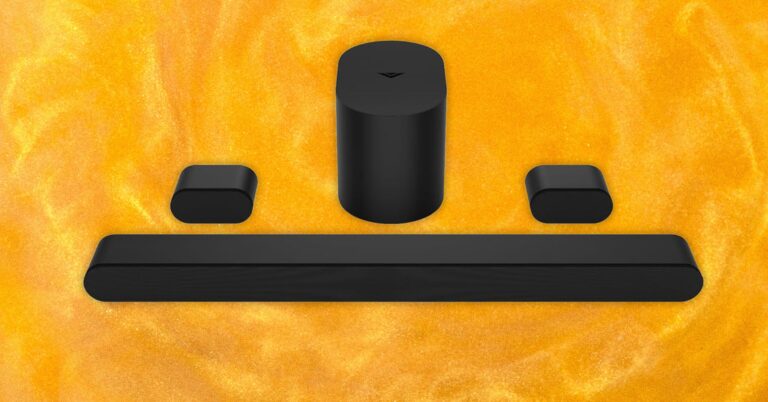It’s never too late for your New Year’s resolution: 5 expert tips for achieving your goals
Everyone has goals, and the new year is a great time to reevaluate how you’re pursuing yours. However, some give up or rethink their goals even before the end of January. There’s even a name for it on the second Friday of every January: Give Up Day. This year it is on January 10.
If you’re on the verge of throwing in the towel, or have already done so, don’t worry. Contrary to some discouraging headlines, sticking to your resolutions and achieving your goals isn’t impossible or even impossible—and you can start over anytime. But as a general rule, viewing your desires as “goals” can be more helpful than “resolutions,” said Candice Sethi, a psychologist, personal trainer, and nutrition coach. This is because people tend to do quite well with goals as long as you have the right approach and set them for the right reasons.
“It’s so important to approach New Year’s resolutions the same way we approach goal setting,” Sethi said.
Goals aren’t just fun, they’re essential to what keeps us moving in life. So is it a fitness goalnew wellness standard or achieving the next milestone in your creative passion, here’s what Sethi and other experts say about working with your own psychology to achieve your New Year’s resolution.
1. Find the deeper reason for your goal
Just like the main character in a movie, you need to find your “want” for your decision to be effective. Sethi calls this “revisiting the why.” Why do you want to lose weight? Why do you want to eat healthier? (As a spoiler alert, it’s almost never about weight and almost never about food.)
“Weight loss is not the goal,” Sethi said. “Weight loss is a means to an end.”
To unpack your goal of losing X number of pounds, for example, examine the reasons why you want to do it. Do you think you will feel better? Do you think it will make you feel more energetic? Will you smile more when you have more energy?
What about reasons to stop drinking?
If you’re having trouble finding the deeper reason for your purpose, Flynn Skidmore, a therapist and life coach, has devoted much of his online content to teaching people strategies to understand why they really want what they do. He explains some of the reasons why we bottomed out in December episode from his podcast, The Flynn Skidmore Podcast.
“There are layers,” Skidmore said on his podcast. “And when you only see the surface layers of what it means to have a desire or to want something, life is very, very confusing.”
As you go through this mental checklist and find the true value of your goal, you can be given an energizing push to pick up where you left off. Alternatively, by identifying what you will accomplish in achieving your goal indeed do for you, you may learn that you set the wrong New Year’s resolution. If that’s the case, don’t worry. Just go back to the drawing board with an approach that feels better to you.
2. If you’ve already “screwed up”, just start over
Yes, it really is that simple. People may choose the start of a new calendar year to build momentum toward a resolution, but if it’s something important to you, there’s no reason to stop just because you’ve instantly fallen off the wagon. This may be especially true when it comes to health goals. If your goal is to eat more nutritious foods so you have a better chance of living a longer life with less risk of disease, why dip your whole year just because you ate a few donuts or went one day without eating vegetables? If you lead with an all-or-nothing attitude, you’re more likely to give up. This is more likely to happen if our goals are not specific enough or too extreme.
“We can do this for a few weeks, but then it gets really overwhelming and we’re not hitting what we’re trying to hit, so we go into all-or-nothing mode and say, ‘Yes,'” Sethi said.
The best way to avoid 100-or-0 and instead get to 80-20 is by reframing your goal and breaking it down into smaller parts. These are steps three and four.
3. “Approach” instead of “Avoid”
That’s what research published in 2019 found. in American Journal of Lifestyle Medicine the way you set the goal itself plays a role in whether you achieve it, at least as far as health goals are concerned. Specifically, goals that “approach” rather than goals that “avoid” a particular behavior were associated with more positive emotions and a greater sense of psychological well-being.
An example of an “approach” goal to healthy eating, for example, would be: “This year I will eat more vegetables and nutritious food.” An “avoidance” version of the same goal would be “I’m going to cut out candy this year.”
That’s why restriction-based diets are less effective than diets that include healthy foods as opposed to restricting the “bad ones,” according to Sethi.
“When we limit, we make the thing we limit the most powerful thing in the universe,” she explained. By reframing your goal, you can tip the balance of power in your favor.
4. Take small regular steps towards your big goal
What this will look like will depend on your resolution: is it related to work or a creative project, related to fitness and health, or something else?
If you have a big project you’re working on, for example, practice getting up a little earlier each morning before starting your regular work day to fit in your creative passion. Or if you can’t lack of sleepfind another small interval of the day that you can devote to working on it.
For fitness or nutrition purposes, what counts as a “small task” will be a bit more individualized to your specific wellness plan. But as an example, if your goal is to get fitter, mini “exercise snacks” are easy to press and finding small and sensible ways to stay active is regularly an achievement in itself.
Noting small achievements – eating two servings of vegetables one day, drawing for 20 minutes one day, writing for 10 minutes one day, etc. – you’ll have something to fall back on as proof that you’re slowly working towards your goal.
“They allow us to build that confidence and the ability to keep going,” Sethi said.
5. Look for like-minded communities
Surrounding yourself with people who have similar goals or passions can both motivate you and make you feel less alone. Luckily for us, one benefit of social media is that we are in the age of online communities and groups. For example, there is support groups other than Alcoholics Anonymous for people who want to stop or reduce alcohol consumption.
There are also groups—such as pottery, writing, birdwatching, and more—focused on activities that might be related to your big goal and that could ultimately help you achieve it. To find one, you can start by doing a quick search for “online X group” or “in-person X group near me.”
And whatever you do, never stop exploring the basis of your resolution or “connecting the dots.”
“Often times when we set these goals, we connect the dots,” Sethi said. “But when we apply them, we don’t.”








